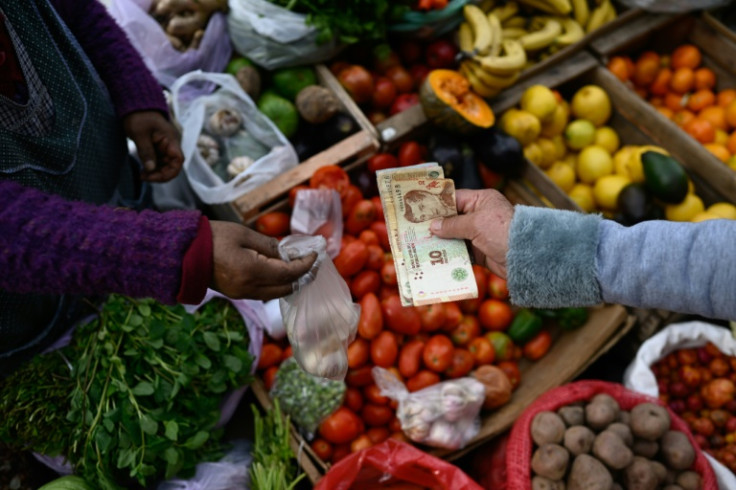
Argentina's central bank has increased the key rate from 118% to 133%, as the inflation in the country continues to worsen.
This is the sixth time the bank has raised its key rate in the same year. The new hike came after September's inflation data was published on Thursday, showing prices increased by 138.3% compared to last year, marking fastest pace since 1990s, when the country was exiting hyperinflation.
The central bank has not commented on the new rates yet. However, economists believe this hike won't help to curb the impact of inflation.
Chief Argentina strategist at Banco Btg Pactual in Buenos Aires, Alejo Costa, said, "The government is trying to gain time and, unfortunately, this does not solve anything. The effect will be almost nil," as per Reuters.
Gabriel Caamano, an economist at Buenos Aires-based Consultora Ledesma, explained this move was like "breaking both legs and then wanting to put a Band-Aid on it."
The Argentine peso has also witnessed a sharp drop in last couple of weeks. Considering the upcoming elections on Oct. 22, one of the presidential candidates, Javier Milei, has promised Argentines that he will bring dollarization in the country, which will replace pesos with US dollars.
Argentina's five presidential candidates -- Milei, Sergio Massa, Patricia Bullrich, Juan Schiaretti, and Myriam Bregman -- had faced off earlier this month in a debate to discuss various topics including economy.
During the debate, Milei slammed the economy minister Massa for Argentina's inflation, noting that in the next 50 years, the country will be the biggest slum in the world.
He pointed out that Argentina "started the 20th century as the richest country in the world and today we are in the middle of the table."
Considering the country's economic condition, Argentina has a history of instability due to inflation, fiscal deficits, and currency devaluation.
However, the presidential race in Argentina is expecting a new government that might attract investors in the country and pull the second-largest economy in South America out of its financial woes.
© 2025 Latin Times. All rights reserved. Do not reproduce without permission.







